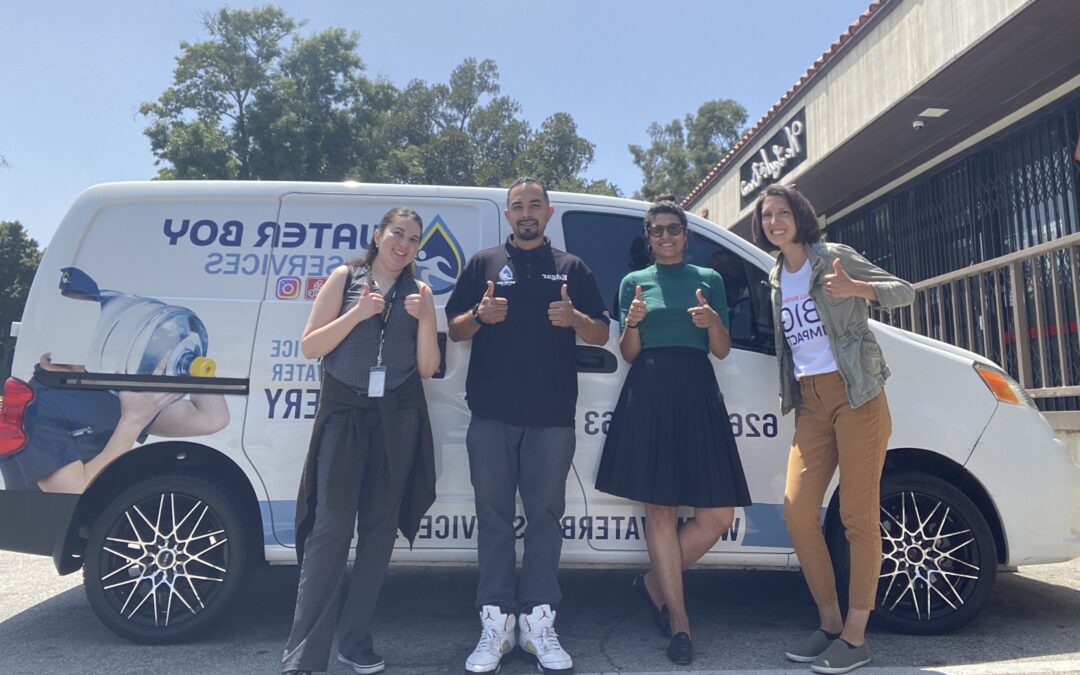


The survey also identified how businesses are already taking steps to reduce waste and increase energy efficiency. For example, 55% of respondents reported engaging in recycling or other eco-friendly practices, while 26.5% have implemented energy-efficient measures such as LED lighting and smart thermostats. However, 9.9% of businesses admitted to not having taken any steps toward environmental sustainability.
Many respondents expressed interest in further reducing waste, enhancing energy efficiency, and exploring the use of electric vehicles. However, financing was the most significant concern, with 49% of businesses citing it as their biggest challenge. Beyond money, many also struggle with lack of information about environmental initiatives and the high upfront costs of adopting new technologies.
The feedback from the survey also revealed a strong interest in receiving additional support and resources. Many businesses called for more financial incentives, easier access to affordable renewable energy, and the creation of a local network to share resources and best practices. There was also interest in technical assistance and education, with 28% of businesses expressing a need for training and courses to help them grow.
This is where The Center’s work comes into play. The survey’s findings align closely with The Center’s ongoing resilience efforts, which aim to break down these barriers and open doors to sustainability for small businesses. Programs like the Contractors Accelerator for Climate Resilience are specifically designed to bridge the financing and knowledge gaps, equipping small businesses with the tools they need to thrive in a green economy.
The survey also revealed a strong community spirit, with nearly half of the respondents (49%) indicating an interest in forming a business association to support the neighborhood. The Center, with its deep roots in community engagement and partnership building, is well-positioned to partner with the City of Pasadena to bring this vision to life, fostering greater collaboration among local businesses and building a more resilient community.
Volunteers also assessed the awareness and accessibility of existing programs that assist businesses in improving energy efficiency and upgrading equipment. The information collected and insights gained will guide The Center and the City in creating strategies to ensure that small businesses not only benefit from federal, state, and local programs designed to support climate resiliency, but also contribute to the green economy. Insights gained from this survey will help guide decisions about funding small business resilience to climate change. The hope is that the lessons learned from this initiative will inspire similar efforts across California and beyond.
In the end, the Small Business Green Survey Crawl underscored the urgent need for increased awareness, financial support, and technical assistance to help small businesses transition to more sustainable practices. The Center’s programs are already making strides in these areas, and the data gathered will help shape future efforts to support the local business community.
The Center is grateful for the City of Pasadena for its partnership in this crucial work and looks forward to continuing to collaborate with cities, counties, and organizations to help community development groups and small businesses access state and federal funding for climate-focused and clean energy projects. Together, we are not just building a green economy; we are ensuring that every small business is a part of it.
The Green Survey Crawl was powered by volunteers from Comerica, Citizens Business Bank, California Bank and Trust, First Citizens Bank, Pacific Premier Bank, Lendistry, City National Bank, and Collaborate Pasadena. We extend our heartfelt thanks to these organizations and their volunteers for their support in making this event a success.
This project is supported by the Economic Recovery Corps, a new initiative aimed at helping distressed communities recover from the COVID-19 pandemic. The Corps connects these communities with the talent and resources needed to support innovative economic development and lasting change.
August 23, 2024

